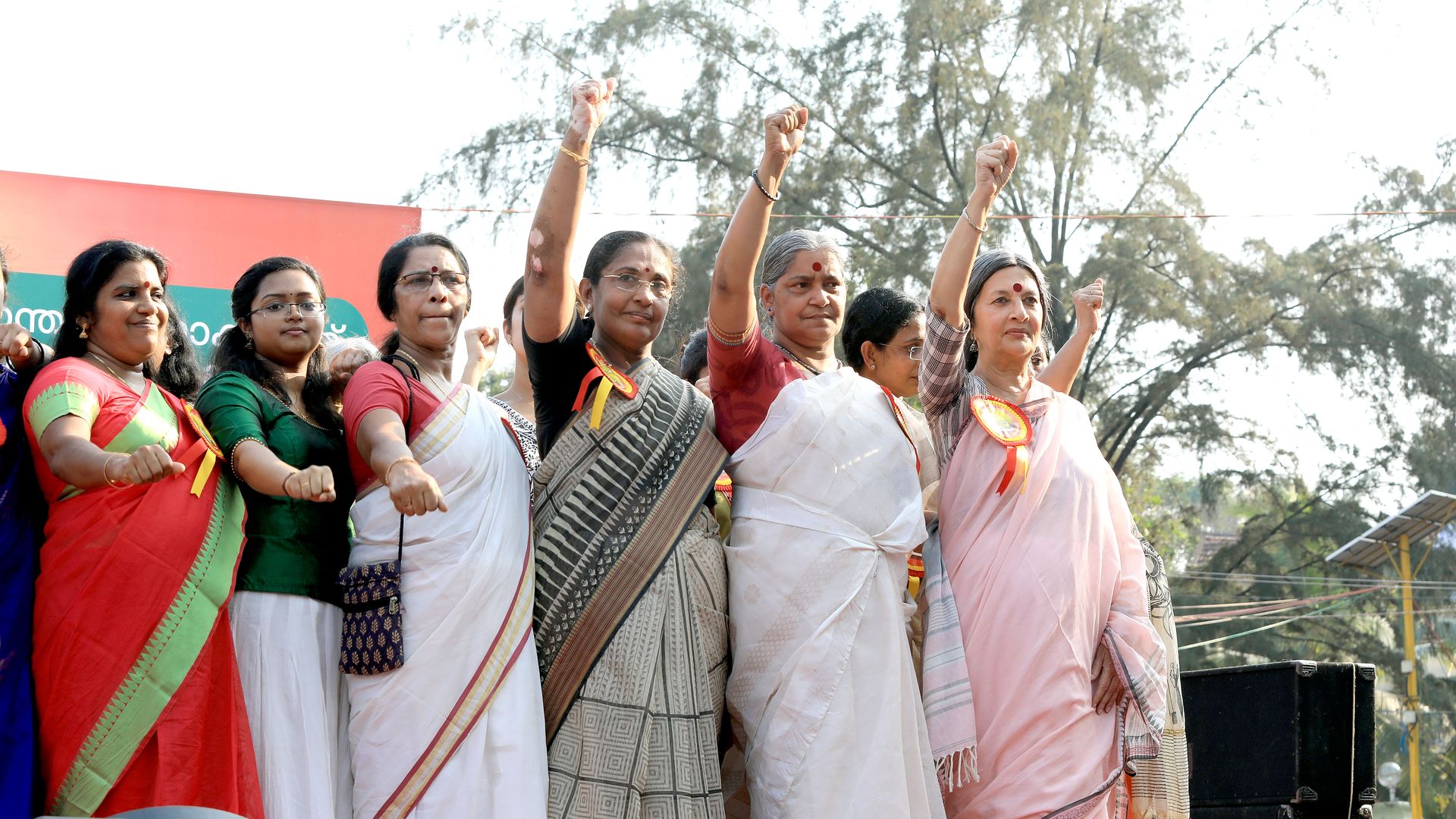Jan 11, 2019
Expert VoicesWomen are challenging menstruation taboos in India and Nepal
Add Axios as your preferred source to
see more of our stories on Google.

Women gather to participate in the 385-mile-long "Women's Wall" against gender discrimination, in Kerala, India, on Jan. 1, 2019. Photo: Vivek R Nair/Hindustan Times via Getty Images
